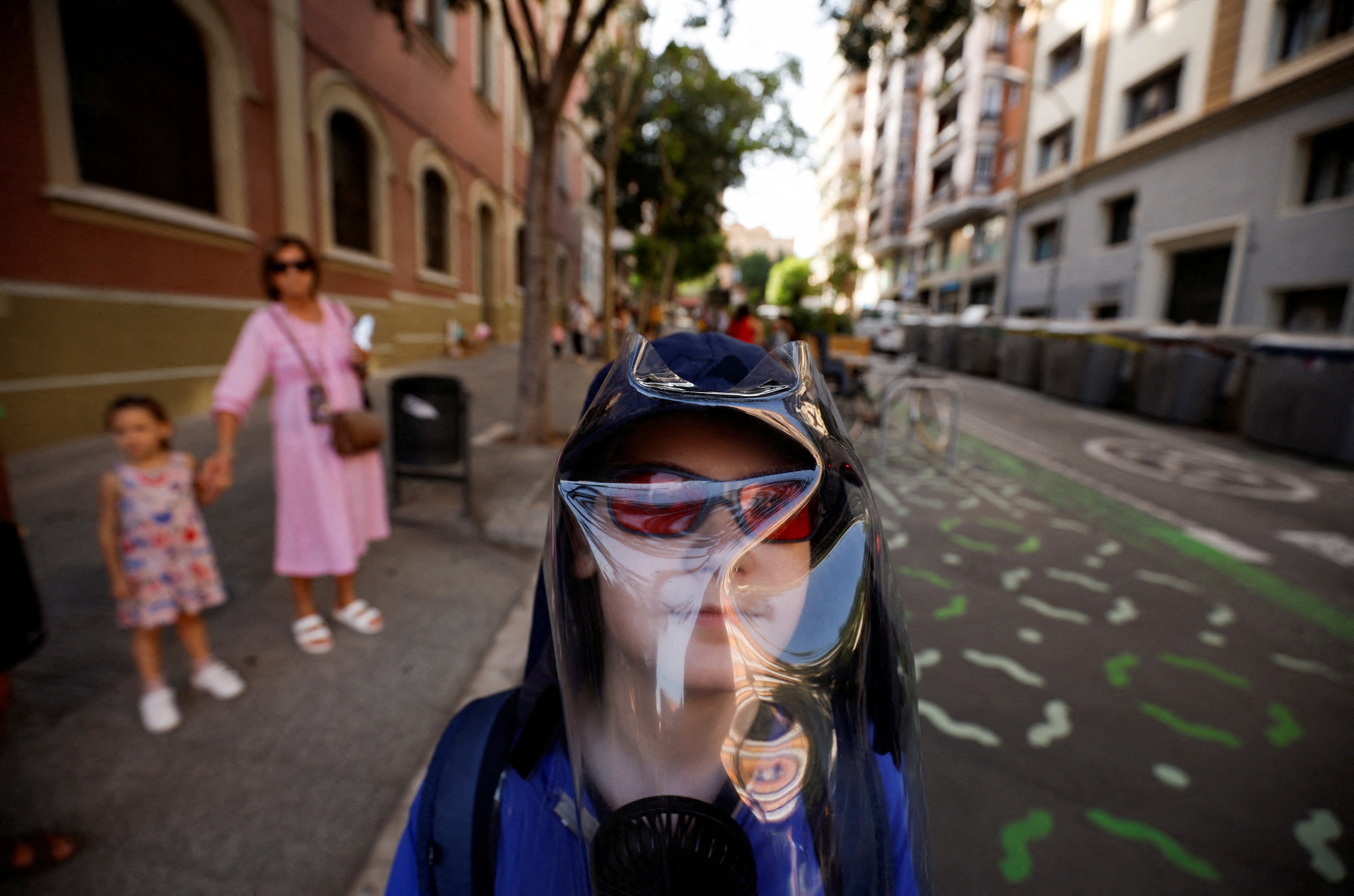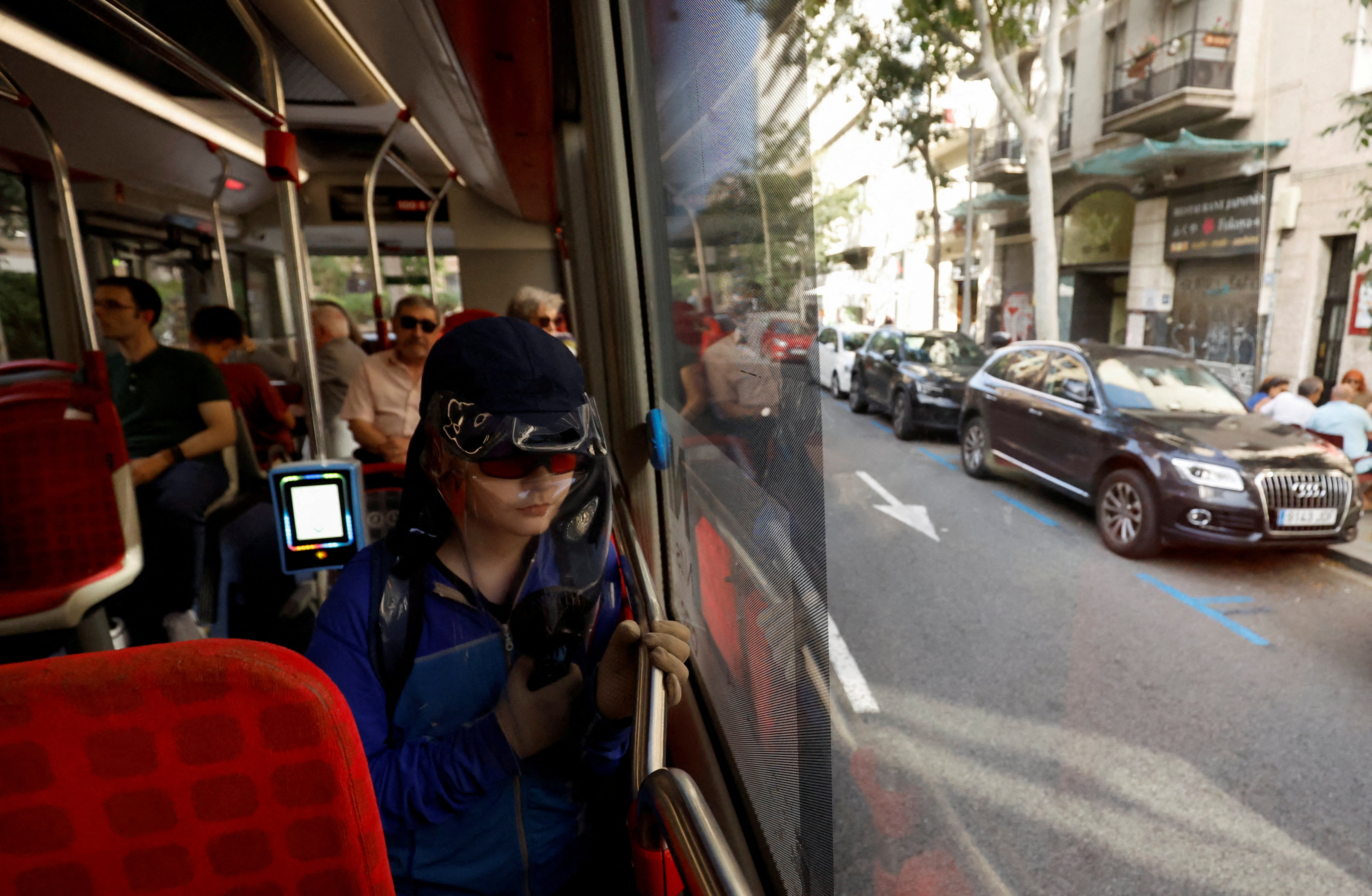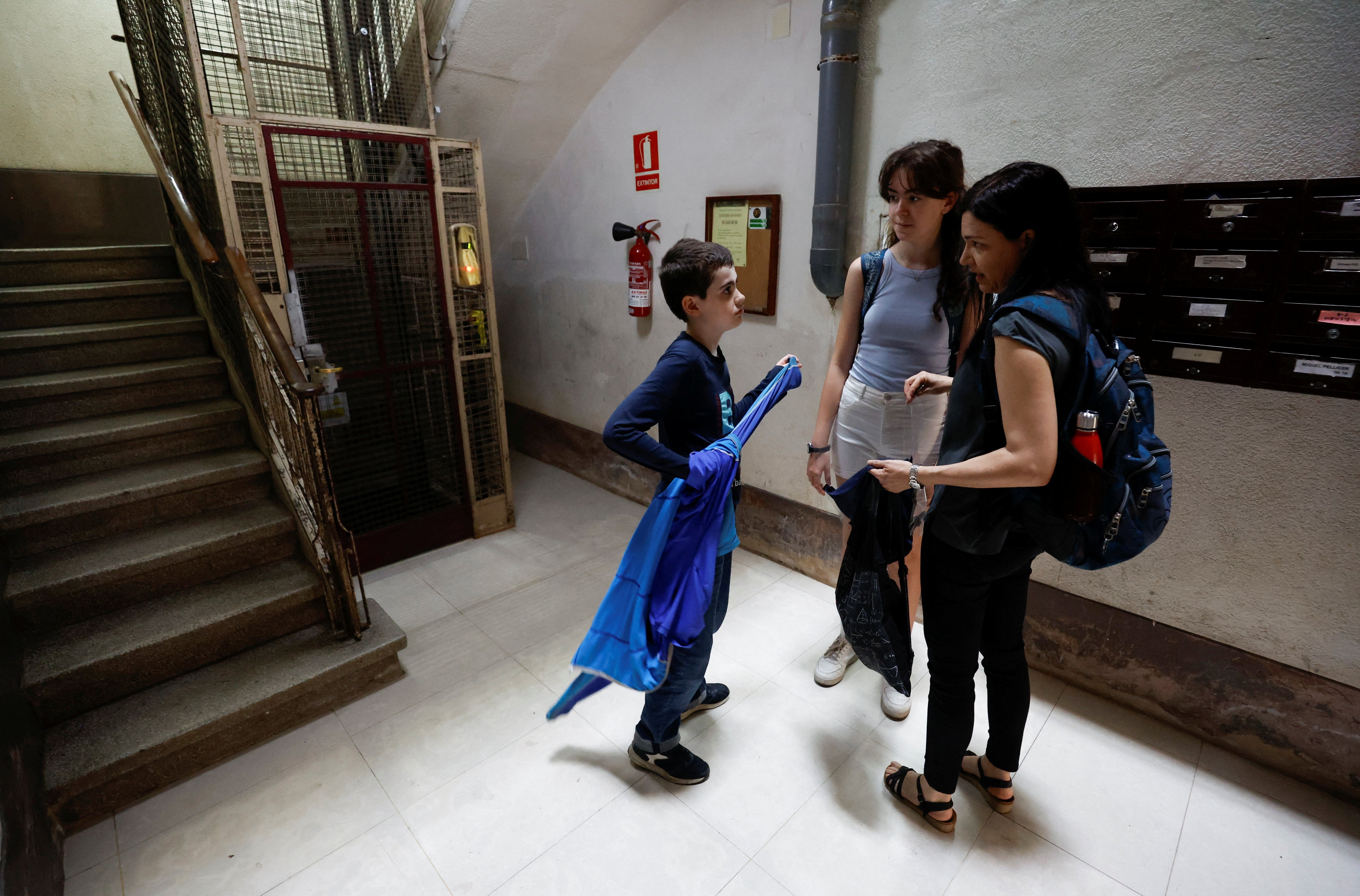The boy with the ultra-rare disease who is allergic to the sun
Pol Dominguez, 11, has Xeroderma Pigmentosum

Your support helps us to tell the story
From reproductive rights to climate change to Big Tech, The Independent is on the ground when the story is developing. Whether it's investigating the financials of Elon Musk's pro-Trump PAC or producing our latest documentary, 'The A Word', which shines a light on the American women fighting for reproductive rights, we know how important it is to parse out the facts from the messaging.
At such a critical moment in US history, we need reporters on the ground. Your donation allows us to keep sending journalists to speak to both sides of the story.
The Independent is trusted by Americans across the entire political spectrum. And unlike many other quality news outlets, we choose not to lock Americans out of our reporting and analysis with paywalls. We believe quality journalism should be available to everyone, paid for by those who can afford it.
Your support makes all the difference.Pol Dominguez, 11, is enjoying his summer holidays in Spain. But unlike most children his age, he does not spend his days at the beach or pool, instead staying indoors to avoid ultraviolet radiation that could be deadly for him.
Dominguez has Xeroderma Pigmentosum (XP), a rare disease that affects his skin and eyes. Patients are unable to repair their DNA from solar damage, which puts them at high risk of developing cancer.
His case is extreme: even brief exposure to sunlight causes serious burns. With only 2.3 cases per million live births in Western Europe - and around 100 people living with XP in Spain - the hereditary disease is usually detected early when burns appear.
Dominguez and his family, who live in Barcelona, have radically modified their habits to avoid exposure to UV radiation. To avoid severe sunburns and blistering, Dominguez wears a hood, jacket, sunglasses and gloves outside, even in winter.
In summer, he stays indoors as much as possible, but when he does need to leave the house, the protective clothing is hot and uncomfortable.

Dominguez’ school has adapted windows and lights so he can have as normal a life as possible, although he needs to bundle up for outside activities and carries a UV meter to check that an environment is safe.
“It’s very hot and I use a fan to make it cooler,” he told Reuters on one of his last days of school, using a portable fan underneath the shield he wears over his face.
Dominguez’ home is UV-light-proof, with protective film on windows, blinds lowered and fans to keep the environment well-ventilated, said his mother, Xenia Aranda.
“What we do is go out at night,” Aranda said. “At around 10 p.m. we say: ‘What would we like to do, Pol? Go to the beach, grab an ice cream, go for a run?’”

Pol is spending part of the summer with his grandparent Ferran Aranda in Portbou, near the French border. When the sun sets, he can finally go to the beach without protective gear. Just eating an ice cream outside or turning his towel into a superhero’s cape brings a smile of delight to his face.
As heatwaves become more frequent and intense and spread across seasons due to climate change, the risks to Pol and others like him increase.
“The more hours of sunshine, the more solar damage. Therefore more illness,” said Asuncion Vicente, a pediatric dermatologist at Barcelona’s Sant Joan de Deu hospital.
Join our commenting forum
Join thought-provoking conversations, follow other Independent readers and see their replies
Comments